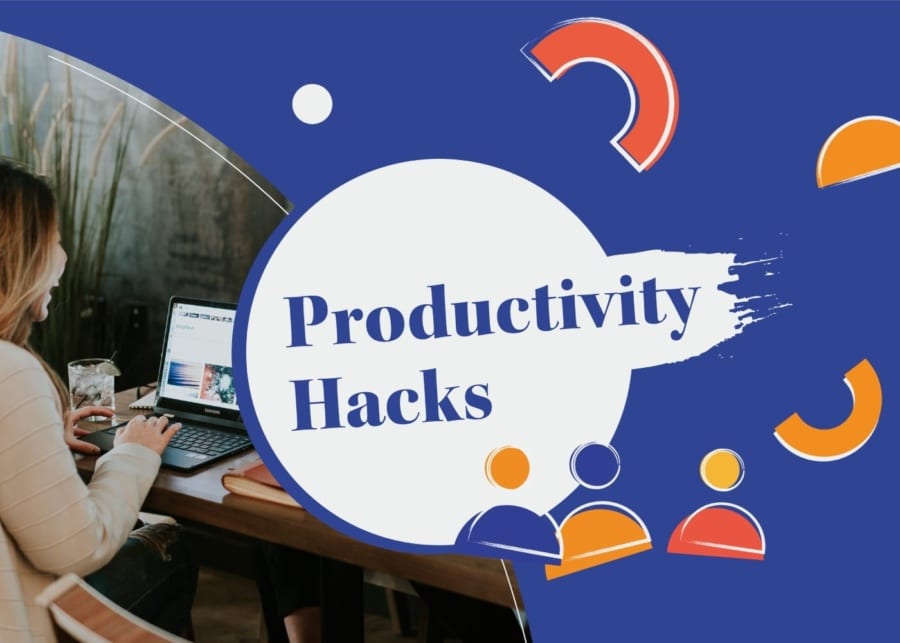
How to work smarter: 6 tips on how to be more productive in the workplace so you have more time for the fun stuff
Whether you’re an employee of a large company, an entrepreneur, or working after-hours on your side hustle, we all want to achieve more in less time. After interviewing many successful business people and company founders, I’ve found these to be the most common answers on how to be more productive in the workplace. Having implemented a number of these strategies myself while working on both Digital Collective and Honeycombers Hong Kong, I promise that they work. Now go get things done, and enjoy more downtime ASAP. P.S. If you like being organised, then you may be interested in this article about our fave business tools and apps too.
HOW TO BE PRODUCTIVE IN THE WORKPLACE
1. Sit down and really think about when your brain works best
You really need to know yourself before you can get the best out of yourself. Pushing forty and having been in the workforce for over twenty years (sheesh!), I know that I work best in the mornings. Between 06:30-12:00 are my Ninja Hours! This is when I do my best writing, and this works particularly well when working from home as it means I can get things done before the team even starts at 9am. Afternoons are tough for me in terms of creativity, so this is when I tend to schedule external appointments and internal catch-ups.
If you find it hard getting out of bed in the morning and can’t wind up until after lunch, then what are you doing with those morning hours? Could you be using them more effectively by researching or working on social media? Or maybe you slide your work hours to suit your body clock and do an 11am – 7pm day?
If your office works to strict hours, consider asking your manager if you could move your hourly start and finish times. If you have a good reason for this (and hopefully a good manager) there’s not really a reason for them to say no, at least on a trial basis. Then, it’s up to you to knock it out of the park.
If you’re setting your own hours, then you can pretty much work to whatever suits you and utilise your brain when it’s most active. Just remember that most businesses still tend to work the traditional 9-to-5, so avoid sending any emails in the evenings.
2. Work on something else before you check emails or social media every day

Sounds random, but email doesn’t have to be the first thing you do every day. Instead, it’s good to get in the habit of completing a necessary task or project before opening up the rabbit hole that is email.
For me, I start the day by writing or editing an article for Honeycombers Hong Kong as this is the most important part of our business. I will then go through some analytics tools to see how our stories are trending and basically check off the most important things for each day.
Then, when I do open my email (filled with hundreds of messages from PR companies, business owners, internal communications etc.) I know that I don’t have to worry about falling behind on my priorities.
Some call it swallowing the frog? This sounds a bit gross to me though, so I call them my Ninja Hours, and they definitely help with being more productive at work.
3. Use a calendar to block off your weeks/days/hours
I’m the biggest fan of blocking time off on my calendar and the senior team at Honeycombers are too for one simple reason: it makes life so much simpler. To keep things easy, we all work off Google Calendar and block out our meetings, lunch breaks, external (or virtual) appointments. I even block off time for writing or just time not to be disturbed so no one invites me to meetings at that time. You can also block off a time for checking emails each day. I usually do 10am and 5pm.
If you have a centralised calendar that you can refer to, it’s easy to see your week or day ahead and work out how much time you have to fit in other things around these times. It will also be a visual way to see what days are busiest and therefore require more mental energy. You can also colour code different calendars and see what your coworkers are up to without having to disturb them.
Handy hint: Google Calendar lets you set the allotted time you want to block in settings. The default is one hour, which was working well for me, but with the launch of our new business, I’ve lowered it to just 30 minutes so that I am not distracted by things for too long. But if you are more project-based, you could switch this to 2-3 hours. Whatever suits you really.
4. Just say no to notifications
I felt incredibly old the other day when a coworker showed me her phone and she had notifications pending on all her apps. When I asked her why, she said she needed to see when emails come and when she gets messages on social media, but I was like: why? Obviously, she can do what she likes for her personal apps, but for work-related emails and things, you don’t need to have notifications switched on. In fact, they can be detrimental.
Yes. It’s good to have a quick response rate to emails, but if you’re too quick, people will always expect this and it will become an obsession. If you’ve blocked off an hour block for emails each day (see point two), then you should never miss anything of importance.
Constantly being notified of messages, likes, DMs etc for work is not good for your mental health. While digital is a great way for us to work quicker, we also have to treat it the way it was intended: as an assistant, not a cure-all. Removing the beeps, vibrations, and previews will definitely help you be more productive in the workplace and should make you feel a little more relaxed in general too.
5. Take regular breaks

Did you know that the human mind can really only concentrate on any one thing for 45 minutes? That’s why classes are generally set around the one-hour mark. Just because you are working full-time doesn’t change this, so make sure you are taking regular breaks to help fuel your productivity.
If you’re constantly adding more and more information to your brain and asking it to perform without giving it time out, then it’s not going to be at its peak. Imagine if you asked your legs to just walk around 24-hours per day non-stop without a break?! Along with the muscle soreness, you’d suffer from fatigue, cramps, and dehydration.
Go for regular walks, take your assigned lunch break, and tea breaks. Also, just because you can work every hour of the day doesn’t mean that you should. Remember that if you’re working more than 10 hours per day, you’re probably going too hard.
6. Turn off any distractions
We get it. Bumble chats help take your mind off things; Instagram inspires you; and Podcasts allow you to multitask, but when you are working, it’s best just to be working. Turn off your phone (at least when you are in your Ninja Hours), disable any other computer notifications and just focus on what needs doing.
For years and years, humanity got things done without computers. Now that we have them, they certainly make things easier, but if you’re not using them well they can actually be a hindrance.
